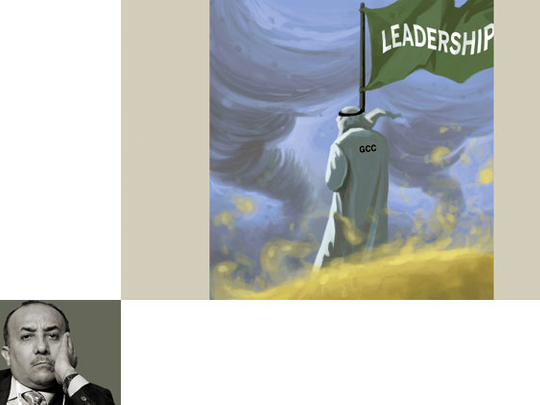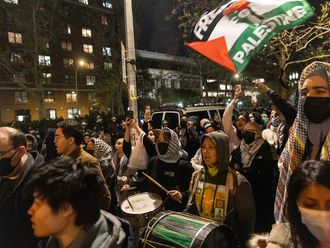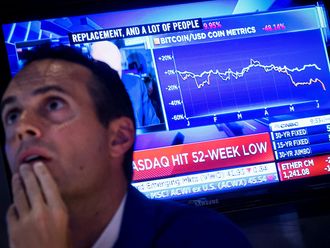
For over a year now we have been witnessing unprecedented changes sweeping the Arab world from the Atlantic Ocean to the Arabian Gulf. These changes have impacted the Arab psyche, dreams and collective conscience of the Arab masses and have to a great deal changed the Arab political landscape.
What is clear through these tumultuous changes and upheavals is the push for freedom, dignity, accountability and the yearning of the masses to be heard and be counted as they try to achieve the unalienable rights they have been deprived of for decades by their oppressors.
It was argued by western and even Arab scholars that Arabs are change and reform resistant. Samuel P. Huntington in his influential book The Third Wave: Democratization in the Late Twentieth Century discussed the spread of the third wave of democracy all over the world, except in the Arab political system and its lack of political reforms.
The Lebanese-French scholar Gassan Salame lamented in his book Democracy Without Democrats the lack of democracy in the Arab world. The Qatari scholar Ali Al Kawari dissected in his book The Crisis of Democracy in the Arab Countries, the lack of consensus among the Arab regimes, elites and political parties as to what is democracy and how to go about achieving it.
There is no doubt that these events for over a year now, have brought to the fore fresh thoughts, new thinking, emboldened the masses, upped the ante and catapulted the GCC states into the leadership role.
Toppling four entrenched autocratic regimes in the Arab world in one year is something that can't be taken lightly. The question being asked is why have only Arab republics that used to mock monarchies in the Gulf suffered the brunt of the Arab Spring? Why have some republics that have not instituted reforms, like Algeria or Lebanon, which has a unique system of consensual democracy to suit its confessional political and social strata and system, not experienced the winds of the Arab Spring? But the most asked question has been why have the Arab monarchies, led by the GCC states, weathered the storm more or less unscathed, with the exception of Bahrain? Was it because of their demography and lack of rentier economy?
The GCC showed solidarity and came to the rescue of two member states, Bahrain and Oman. They drew a line in the sand and shouldered their collective responsibilities militarily, financially and politically.
Moreover, the GCC confidently dealt with the forces of change sweeping the Arab countries in calculated and measured steps ameliorating the social and political wellbeing of their citizens in various ways. They confidently led the Arab pack in supporting forces of change sweeping many Arab republics. The GCC states and societies emerged as the biggest winners.
Collective efforts
What is ironic is that the Gulf states weathered not only the forces of the Arab Spring; but benefited from it. The gusty winds of Arab Spring impacted the political and ruling elites in the GCC states more than it impacted the Gulf people and masses. We saw how the GCC rulers led the charge in Bahrain, Oman, Yemen, Libya and Syria.
We saw the soft and even hard power of the GCC in Libya leading the Arab League in siding with the Libyan people, and that was repeated in Yemen with the GCC initiative that made the transition to Abd Rabbo Mansour Hadi, who was sworn in as the new president of Yemen. For the first time in decades, Yemen has a living former president. And of course we see the GCC collective efforts today in Syria, where the Saudis and the Qataris are taking the lead in going as far as demanding the arming of the Free Syrian Army.
While in Kuwait, the new feisty National Assembly (Parliament) took a break from its bickering and squabbling with the government and turned its attention towards a foreign issue. The Kuwaiti Parliament conducted in open sessions emotional public hearings on the plight of Syrian people.
It even went a step further to become the first parliament in the world calling for severing ties with the Syrian regime, putting its leadership on trial, arming the Free Syrian Army and recognising the Syrian National Council as the legitimate representative of the Syrian people.
A few Kuwaiti MPs put their money where their mouths are and donated their March parliament salaries to the Syrian people. One MP even donated money he was awarded after winning a lawsuit to the Syrian people. The official Kuwait TV station along with private Kuwaiti TV stations ran a telethon for days collecting thousands of dinars to support Syrian refugees.
The Arab Spring has emboldened the Gulf masses and raised the bar of political demands and reforms within those states. It has pushed the GCC leadership to play the leading role in the Arab world. That is a clear indication of the resilience of these regimes and a sign that the GCC's moment in history as the new leader in the region and the Arab world has arrived.
Professor Abdullah Al Shayji is the Chairman of the Political Science Department, Kuwait University. You can follow him on Twitter at www.twitter.com/docshayji












